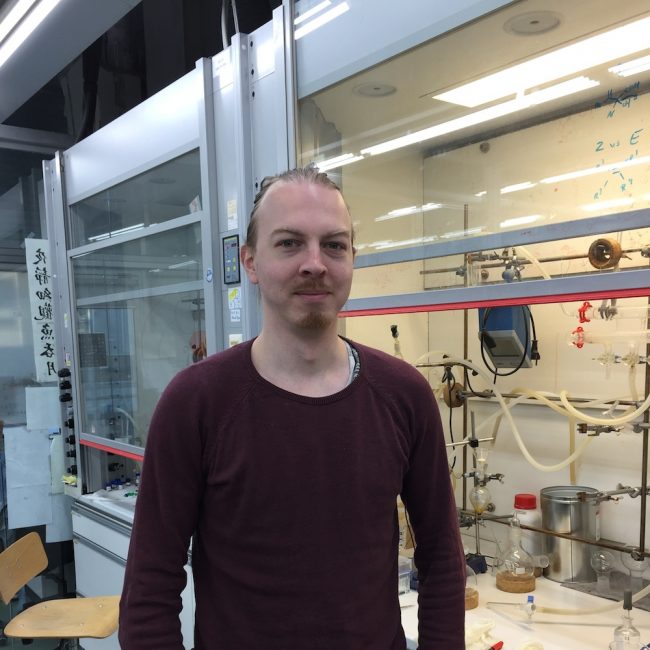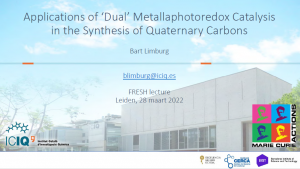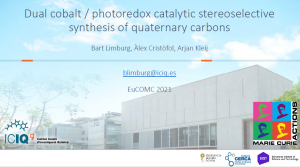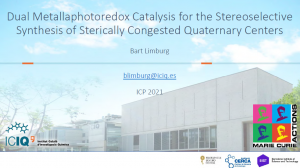Bart holds a PhD degree from Leiden University, The Netherlands in 2015 under supervision of Dr. Sylvestre Bonnet and Prof. Elisabeth Bouwman. He researched photocatalytic redox reactions at the surface of liposomes, with a special focus on water oxidation. After a short postdoctoral period at the same university researching the biomass-based synthesis of nylon-6, he then joined the lab of Harry Anderson at the University of Oxford in 2016. There, he studied how electricity flows through single molecules, in particular through porphyrins anchored to graphene. Since January 2019, he has been a part of the Kleij group, researching photocatalytic transformations. Since June 2020, he is focusing on the synthesis of amino acids from CO2 and light as an MSCA-fellow. Outside the lab, Bart enjoys playing guitar, game-programming, and watching series and films.
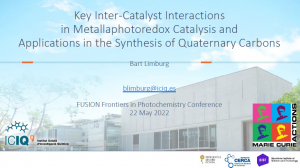
Key Inter-Catalyst Interactions in Metallaphotoredox Catalysis and Applicaitons in the Synthesis of Quaternary Carbons
Dr Limburg presented a lecture in the FUSION Frontiers in Photochemistry Conference (May 2022, Cancún)
